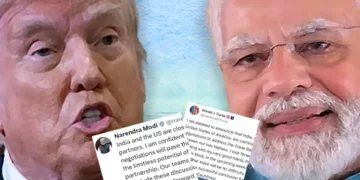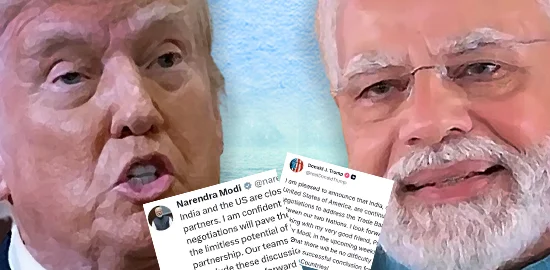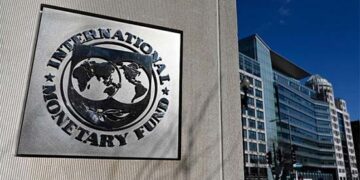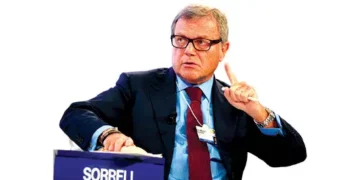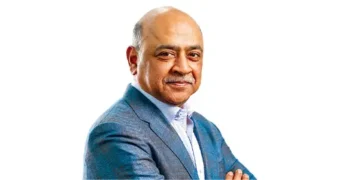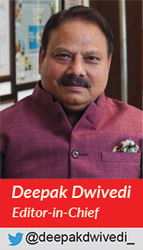 The ongoing tariff tussle between the United States and India has evolved into a demonstration of New Delhi’s rising diplomatic weight. President Donald Trump’s public criticism of Indian trade practices, paired with steep tariffs and sharp rhetoric on social media, has paradoxically strengthened India’s moral authority and strategic autonomy.
The ongoing tariff tussle between the United States and India has evolved into a demonstration of New Delhi’s rising diplomatic weight. President Donald Trump’s public criticism of Indian trade practices, paired with steep tariffs and sharp rhetoric on social media, has paradoxically strengthened India’s moral authority and strategic autonomy.
On September 1, President Trump posted on Truth Social that “India has offered to cut their tariffs to nothing, but it’s getting late. They should have done so years ago.” His comments came after Washington had already imposed duties of up to 50 per cent on Indian exports, targeting New Delhi’s continued imports of discounted Russian crude oil.
Conciliatory note
Just over a week later, Trump struck a more conciliatory note, writing that despite the friction, negotiations with India were continuing. He said he looked forward to speaking with Prime Minister Narendra Modi in the “upcoming weeks” and expressed confidence that there would be “no difficulty in coming to a successful conclusion for both of our Great Countries.”
Prime Minister Modi responded with a blend of grace and firmness. When Trump described him as a “great Prime Minister” and “friend,” Modi replied that he “deeply appreciates and fully reciprocates” those sentiments, reaffirming the strength of the India-U.S. strategic partnership. At the same time, he made clear that India’s decisions would be guided by national interest and principles. PM Modi emphasised that while New Delhi respects its partnership with Washington, energy security and economic pragmatism remain paramount. He underlined that India was prepared to “pay a heavy price” rather than compromise on its sovereign choices.
Even as the two leaders exchanged words, the US Court of International Trade ruled that many of Trump’s sweeping tariffs were unlawful. The Federal Circuit upheld most of that ruling. The case is now headed to the US Supreme Court. The intervention of American courts has reinforced India’s case that such sweeping tariff actions are not only politically coercive but also legally unsustainable. These developments mark a diplomatic turning point for India. By refusing to yield on Russian oil imports, New Delhi has asserted its sovereign right to pursue independent energy and economic choices, even in the face of US pressure.
Balancing relationships
In maintaining dialogue with US despite friction, India has shown its ability to engage major powers without surrendering leverage. At the same time, its parallel outreach to Moscow and Beijing highlights its flexibility in balancing relationships. In the evolving contest of tariffs, law, and diplomacy, India has emerged stronger. It has not avoided American pressure, but it has turned that very pressure into proof of its strength.
